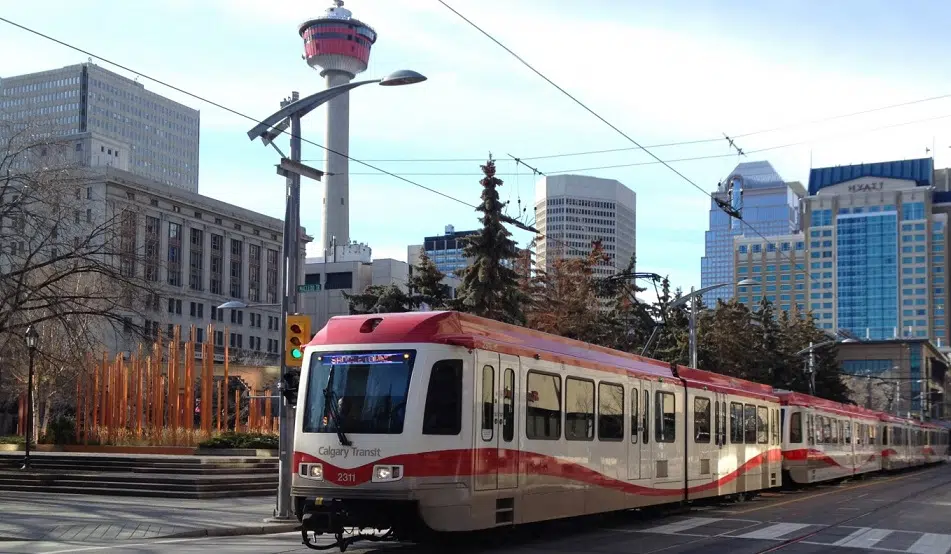Peter Holle’s polemic “Light rail isn’t the ticket to a better city”, published in the Winnipeg Free Press on Saturday, February 12, raises more questions than it answers. Peter Holle attempts to suggest that any form of rapid transit demonizes our car-based society. In its extreme form, Holle suggests that those who support LRTs also support an urban limit line, uses zoning to create higher urban densities, and expanding transit (particularly light rail transit).
Contrary to what Peter Holle suggests, one does not have to be a socialist or have a central planning mind-set in order to suggest that maybe there’s something wrong with our car culture and unlimited urban sprawl.
It is most disconcerting to read Peter Holle’s observation that the civic government get out of the whole Plan Winnipeg’s “downtown first” policy. While I agree with Holle that grandiose multi-government planning agreements, subsidized stadium, and relocating Hydro are not the answer to revitalizing the downtown, I fundamentally disagree with his suggestion that the City eliminate the “downtown first” policy which was passed almost unanimously three years ago.
Pray tell me, Peter, how cutting high taxes and regulations is going to make downtown an interesting place, recognizing the fact that only 13,000 people live in the downtown at the present time? Even Randal O’Toole, a right-wing American economist whom you quotes extensively in your column, has suggested that an LRT might work in Winnipeg where jobs are concentrated downtown and a rapid transit system would encourage downtown development. Well, isn’t that what we all want?
The fact is, contrary to what Peter Holle says, our transit system has not worked well precisely because we have had a great deal of suburban growth, and Waverley West does nothing but increase suburban growth at the expense of the inner city. Holle is correct in stating that the highest transit ridership ever reached was 60 million in 1986 and is down to 40 million Transit users annually today. This is due to the fact that there has been a 21% cut in services since 1986, and we have been “nickeled and dimed” to death with transit fare increases over the past decade.
In particular, I would like to challenge Holle’s opinion that an LRT would attract riders from buses, not cars. As Carolyn De Coster from Calgary says, “the LRT is smooth and quiet and best of all, usually quicker than taking my car to go downtown and it seems many Calgarians feel the same way. There are huge car parks at LRT stations in the suburbs for people to ride the rails into downtown.” The fact is that the LRT is environmentally friendly, fast and efficient – a point that Mr. Holle seems to miss. More cars, more pollution, more congestion. No one who favours LRT suggests that cars will be eliminated entirely, and yet Holle is suggesting that everyone, even the poor, should own a car! Now, who’s being more hypocritical?
No, Mr. Holle, public policy should be to provide cheap, clean and efficient transportation for citizens of all classes.
Nick Ternette is a community and political activist, freelance writer and broadcaster.
Peter Holle responds –
Dear Editor
Re: Nick Ternette Left Punch March 3rd.
Nick brings passion and conviction to his recent defense of light rail transit and Winnipeg’s “downtown first” policy paradigm. But an honest look at this faddish technology will jolt anyone with an open mind. It is comparatively slow and dangerous. It is so expensive that it would inevitably cannibalize Winnipeg’s clapped-out bus and road systems — which would lead to more congestion and pollution. It might benefit the decreasing portion of riders who choose to work downtown. But, as Nick surely must realize, cheap and convenient technologies that enable many to work from home and the mobility of the car culture are inalterably revolutionizing our lifestyles, job markets and shopping patterns.
Downtown’s share of jobs and retailing will continue to fall, despite naïve “downtown first” policies. They merely enrich those with enough inside knowledge to tap into the subsidies generated by the romantic quest to keep things the way they were, once upon a time. It borders on tragi-comedy to see Sam Katz embrace light rail, a slow, costly, inflexible 19th-century option.
The LRT debate is an unfortunate diversion sprung on Winnipeg by a mayor who badly fumbled the transit file. Remember the $50 million in transit grants he assumed could be diverted into patching up an archaic jumble of community centres? This episode is an expensive training exercise for Sam, with a poor policy outcome paid for by taxpayers. LRTs make things worse. Faster, better bus service is the ticket.
Peter Holle, Frontier Centre for Public Policy
Winnipeg


